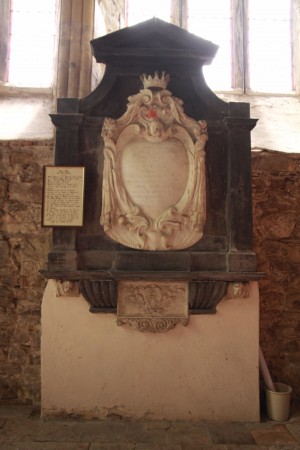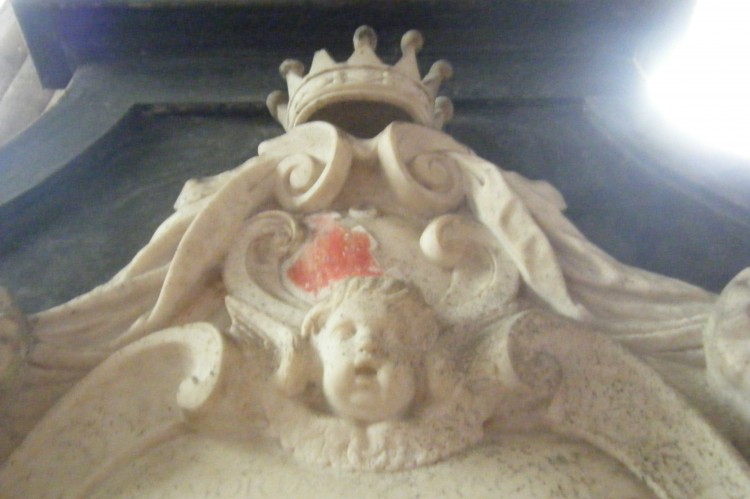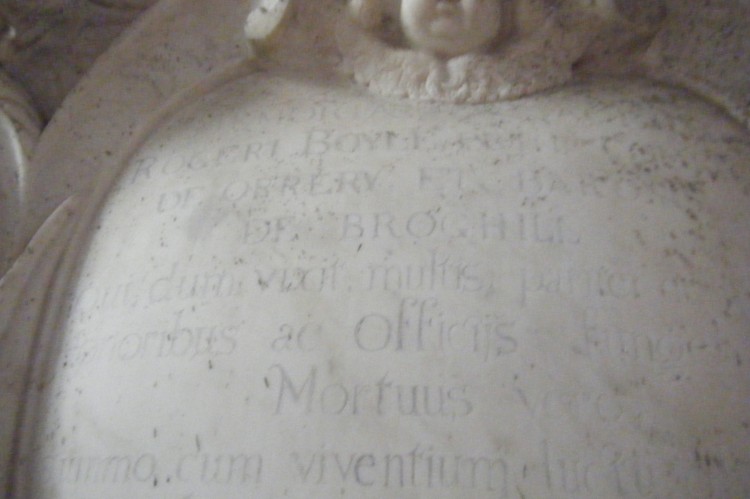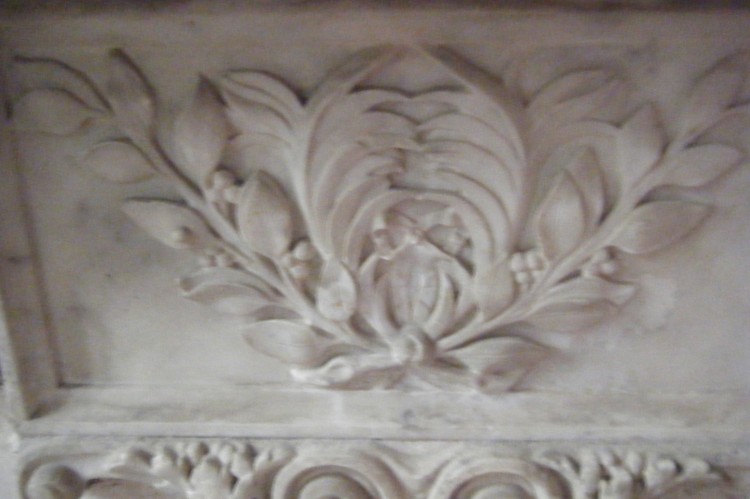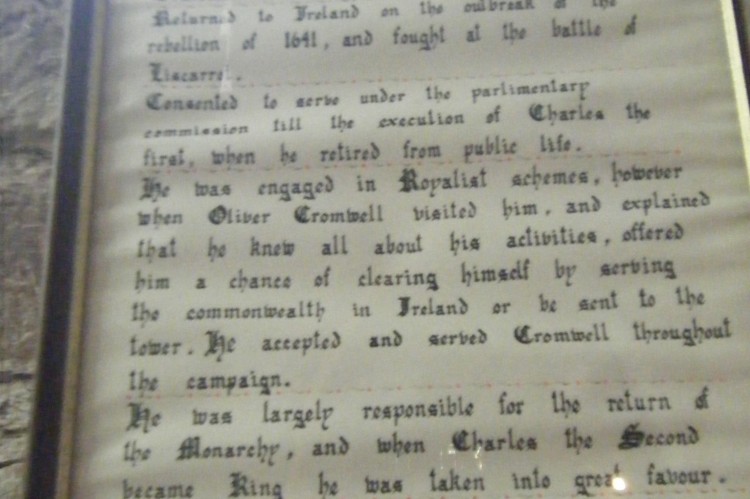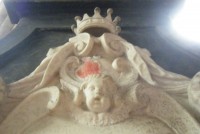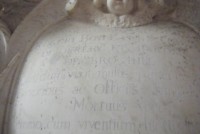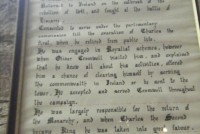CO-SMCY-0844
Memoriae Sacrum
Rogeri Boyle primi comitis
de Orrery et Baronis
do Broghill
qui, dum vixit, multis pariter et summis
Honoribus ac officiis fungebatur.
Mortuus vero
summo cum viventium luctu, obiit decimo
sexto die octobris anno dni MDCLXXIX
annoq aetatis suae 59.
de Quo non hic plura requirat lector
quoniam omnia de Ingenio
vel ex fama
vel ex operibus
dignosere possit.
Described in Samuel Hayman's "Ecclesiastical Antiquities of Youghal" 1854 thus: "On the South wall is a beautiful tablet of white Italian marble, in the shape of an escutcheon, with drapery behind, to the memory of Lord Broghill,the first Earl of Orrery, third son of the Earl of Cork.In the elegant latinity of the inscription, may not we find traces of the scholarship of Lord Orrery's younger brother, the philosophic Robert Boyle?...The slab also bears the following arms- party per bend crenelle,argent and gules, with a crescent for difference, surmounted by an earl's coronet- Virtvs post fvnera vivit."
A modern plaque alongside reads "Roger Boyle, first Earl of Orrery 1621 -1679. Soldier, statesman and dramatist, third surviving son of Richard Boyle first Earl of Cork. Born on the 25th of April 1621. Travelled in France and Italy. Returned to Ireland on the outbreak of the Rebellion 1641 and fought at the battle of Liscarrol. Consented to serve under the parliamentary commission till the execution of Charles the first, when he retired from public life. He was engaged in Royalist schemes, however when Oliver Cromwell visited him and explained that he knew all about his activities, offered him a chance of clearing himself by serving the commonwealth in Ireland or be sent to the Tower. He accepted and served Cromwell throughout the campaign. He was largely responsible for the return of the Monarchy and when Charles the second became King, he was taken into great favour. In addition to Lord Orrery’s achievements as a statesman and administrator he gained some reputation as a writer and dramatist. He died in October 26th 1679.

